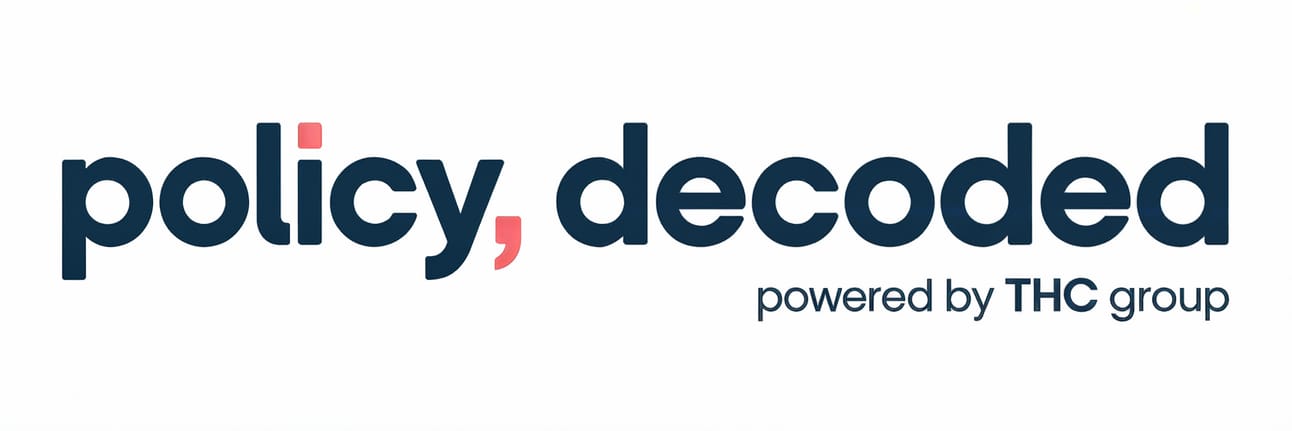Built by a former cannabis regulator, Policy, Decoded is your no-fluff, high-signal daily briefing for operators, investors, and policymakers navigating the collision of law, regulation, and business.
A federal court just killed Oregon’s labor peace rule. This is a major signal about the limits of state cannabis regulation when it collides with federal labor law. Ohio is live for adult-use sales, faster than anyone expected. Alabama hemp operators are suing over a smokable ban. Oklahoma’s Attorney General says regulators overstepped. The paperwork risk continues to grow.
☕ Read it with your morning coffee.
📈 Reference it in your strategy meeting.
📬 Forward it to your compliance lead.
Start smarter. Move faster. Stay ahead.
Seeking impartial news? Meet 1440.
Every day, 3.5 million readers turn to 1440 for their factual news. We sift through 100+ sources to bring you a complete summary of politics, global events, business, and culture, all in a brief 5-minute email. Enjoy an impartial news experience.

Start here — the day’s most important development, decoded for impact.
📌 What Happened:
A federal judge invalidated Oregon’s labor peace agreement requirement for cannabis licensees, ruling that the mandate conflicts with the National Labor Relations Act (NLRA) (Mondaq). The court found that Oregon’s rule improperly inserted the state into federally governed labor relations by forcing businesses to sign neutrality agreements as a condition of licensure.
The lawsuit was brought by a cannabis cultivator who argued the rule violated their rights under federal labor law. The court agreed, issuing a decision that strikes the labor peace rule entirely.
💡 Why It Matters:
This is a direct hit to a regulatory tool that labor groups and some state agencies have relied on to push unionization in the cannabis industry. The court’s message is clear. Cannabis is not exempt from federal labor law. State regulators cannot condition licenses on rules that interfere with federally protected labor rights.
This decision creates exposure for states like California, New York, New Jersey, and Illinois, which also tie labor peace agreements to cannabis licensing. It also raises a broader signal about the limits of state power in cannabis. Federal labor law still governs employment. Cannabis is not a carve-out.
The ruling forces a rethink of how states use economic leverage in the form of license conditions. It also raises operational questions for companies that previously signed these agreements under regulatory pressure.
🧠 THC Group Take: This is a major compliance event. Operators in Oregon are no longer required to sign labor peace agreements. Similar challenges are likely coming in other states.
This ruling also shows how fragile some cannabis regulations are when tested against federal law. Labor peace rules are not the only target. States leaning on creative license conditions, operational mandates, or control definitions that stray beyond statutory or federal boundaries should take note.
The map is moving again. Compliance teams, dealmakers, and policymakers should be watching this closely. This is not the last time a court will remind cannabis regulators that the rulebook still has limits.

Fast-moving headlines, flagged for what matters.
New data shows that MSOs are capturing larger shares of cannabis sales, even though consumers claim to support independent retailers (MJBizDaily). Price, convenience, and brand recognition continue to drive purchase decisions. The gap between what consumers say and where they actually spend remains a structural challenge for independents. Narrative does not beat scale.
Berlin’s new cannabis social clubs are running straight into bureaucratic delays, unclear rules, and inconsistent permitting processes (The Munich Eye). Applicants report months-long waits with little guidance from regulators. The rollout highlights a familiar pattern - legalization without operational clarity creates immediate friction between policy intent and regulatory reality.
Ohio dispensaries opened their doors to adult-use cannabis customers this week, marking the official start of recreational sales (Ganjapreneur). Dual-license holders are the first to serve both medical and adult-use customers. This launch makes Ohio the fastest state to move from voter approval to retail sales, compressing a process that typically takes years into just eight months.
Oklahoma’s Attorney General issued an opinion that the state Board of Health exceeded its authority by adopting certain medical cannabis rules (Ganjapreneur). The AG argues that the board imposed requirements that go beyond what lawmakers authorized. This is a sharp reminder that administrative overreach in cannabis rulemaking remains a live legal risk, and that agency authority is only as strong as the statutes behind it.
Federal prohibition continues to block cannabis companies from accessing standard trademark protections through the USPTO (Cannabis Law Report). Many brands rely on narrow protections tied to hemp, apparel, or ancillary goods. This leaves gaps that competitors and counterfeiters can exploit. Until federal law shifts, cannabis trademark strategy remains a patchwork of state protections and creative legal workarounds.
Hemp operators in Alabama have filed a lawsuit to block the state’s new law banning smokable hemp products (AL.com). Plaintiffs argue the ban exceeds the state’s legal authority and threatens the viability of their businesses. This is another frontline fight in the growing national pattern of states targeting hemp-derived products through aggressive rulemaking and legislative bans.
Maine lawmakers approved a tax increase on adult-use cannabis from 10 percent to 20 percent at the wholesale level, which pushes the effective retail tax to 40 percent (MJBizDaily). At the same time, a bill that would have legalized cannabis consumption lounges failed. This tax hike signals rising fiscal pressure on the industry, while the stalled lounge effort shows lawmakers remain hesitant to normalize public cannabis use.

